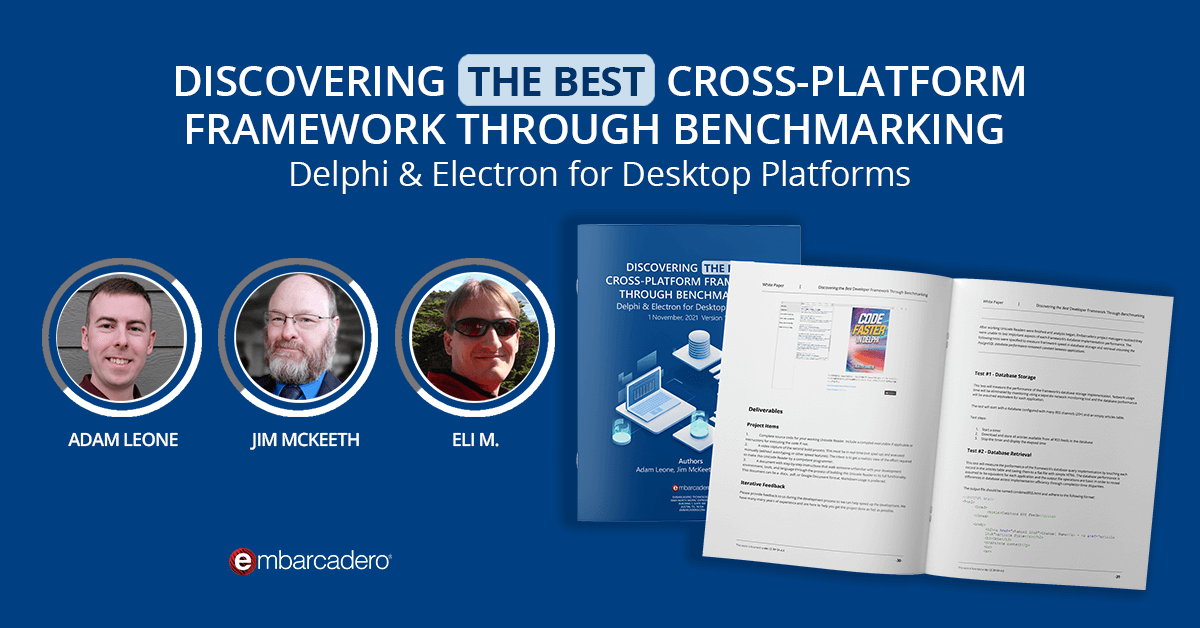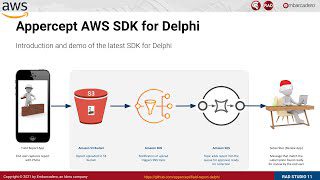
Cross-platform apps, as the name suggests, are designed to function on multiple mobile platforms. They are adapted for different operating systems and are considered to be a cost-effective option for developers to launch apps faster. They have been taking over strictly native apps to prevent duplicate efforts and take advantage of such apps’ diverse platform access.
Multi-platform app development uses a single codebase to launch across platforms and devices. Unlike the more traditional native apps, they save developers time and money in creating apps that can be launched on diverse platforms simultaneously.
Table of Contents
What is cross-platform app development?
Mobile apps became popular with the launch of the first iPhone and continue to be a prime focus for developers. Smartphone users increase every year globally, generating more focus on cross-platform app development.
Many believe that native apps developed with a single operating system in mind are largely superior to cross-platform apps in their performance and reliability. Because these apps are specifically designed for a single system, they might be to tightly matched to the prescribed UI, functions, and layout of the single target operating system. Adherents to this point of view believes this gives them a decided advantage in terms of performance and user experience.

However, this limits the reach of the apps and can cost developers and startups a lot of money and time to create copycat versions of the same app rewritten for a new device target using that target’s proprietary programming language and design tools. Far better instead to design and produce cross-platform apps which make the process of developing and maintaining a product line simpler and cost-effective, allowing a greater user reach with a single launch. By choosing a cross-platform app solution like RAD Studio which uses a single codebase for all variants of the apps also makes for easier and more efficient maintenance since there is only one place in which to look for any bugs or add new functionality.
RAD Studio’s FireMonkey cross-platform framework subtly adapts to things like the look and feel of buttons as well as placement of navigational elements and bars so that they ‘look right’ when the app is running on different devices with the various types and versions of operating system. FireMonkey apps look like they ‘belong’ on the target device with UI and UX behavior which sticks to the norms of the device so that users do not have any odd behavior or jarring experiences.

Is your current cross-platform development tool up to the task?
Multi-platform apps have advantages for both the user and the developer, making them a common choice. However, much like other projects, multiple platform app development has been known to present some unique challenges if the tool chosen isn’t up to the task. Developers should evaluate a cross-platform tool to make sure it can handle the needs of the project.
Are there issues with the user interface?
Native apps are targeted toward a single platform with a simple UI. The issue with them is that they require a lot of time and careful effort in development to maintain consistency. In case of multi-platform apps, the developmental process is quicker and saves a lot of time and money. Since they can support all kinds of operating systems, it gives them an edge over native apps if the tools perform adequately, as they can be used to target a bigger audience.
Multiple platform apps simply require a more diverse UI approach, presenting opportunities to fuse exclusive OS features into a single app. If the tool you are currently uses does not do this effectively it can make for a clunky interface.

What about testing issues and limited support?
Technical support when adapting multiple single clone apps to multiple platforms is significantly more costly and time-consuming. Such apps might require reworking from scratch, and the potential for error is high. While any multiple platform app development requires rigorous testing across platforms, the right framework support can offer a convenient testing solution.
With cross-platform testing, you need to ensure your app:
- functions as intended across platforms
- maintains consistent and adaptable UI
- stays up-to-date on various platforms
With the appropriate application builder software tools, you can integrate a lot of customization. A good Cross-platform apps framework lets you make the best of various OS features while insulating you from the worst eccentricities and quirks of compliance and low-level APIs of the target platform. A decent cross platform framework and app builder tool will abstract the underlaying differences between the devices so that you can target your code at a consistent set of functions, methods, properties and device interface.
How can cross-platform challenges be overcome?
The challenges presented by cross-platform development should not turn any developers away from the project. With the right tool multi-platform apps can shine and really highlight your brand while saving money at the same time.
Should you consider multi UI guidelines?
The UI issue with cross-platform development occurs when there is too much focus on any single platform during development. This can lead to a lack of integration or oversimplifying and minimizing features in the interest of compatibility. Developers should familiarize themselves with diverse UI guidelines and match them across the specific app requirements but also leverage the features of the cross-platform framework to do the ‘heavy-lifting’ of most of the UI and device interfacing for you. The tool should make this easy for the developer to do.
For example, app navigation and tap targets in Android and iOS differ considerably. These variations should be addressed before development, with solutions that address both requirements. Apps that meet the tap target for Android systems, for example, exceed that for iOS, rendering functions in that area pointless for iOS users. If you choose, for example, Embarcadero’s RAD Studio with Delphi and their award-winning FireMonkey FMX framework your code has very little it needs to do differently, if anything, between iOS and Android. Combine this with RAD Studio’s low code component development approach and rich runtime library and you’re dealing yourself a winning hand right from the outset.
Learn more about how Delphi is being implemented as a scripting engine on this article about MFL.
How do I choose the right framework?
The right cross-platform development framework can make all the difference in app development. Different libraries and frameworks are known to offer various benefits to the development process, as well as introduce their own challenges. The hunt for the perfect framework should be based on what you want to achieve with your app.
Multi-platform development can be made much simpler by using a framework specifically designed for this type of app development. They make the process much faster and simpler and let you work across multiple platforms simultaneously. This also takes care of deployment and SDK support issues, which are easier to address through a dedicated, actively maintained framework and integrated development environment.
Learn why Delphi is the best alternative to the .NET framework in terms of stability, scalability, compatibility, efficiency, and aesthetics.
Is FireMonkey and RAD Studio the right framework for your cross-platform apps?
Let’s take a look at some of the support features that RAD Studio offers:
Single Code Base
Create apps for all major platforms with less coding effort. Write once, compile everywhere.
Windows 11
Modernize VCL apps for Windows 11 with up-to-date user interface controls, WinRT APIs, and HighDPI-related features
Remote Desktop
Collaborate more effectively with remote teams using improved remote desktop support for VCL and IDE
High DPI & 4K
High-DPI support in the IDE, with full support for the latest 4k+ monitors, and cleaner and sharper fonts and icons throughout. Improved FMX High-DPI support for Windows and Desktop with a visibly superior desktop UI
iOS and macOS
macOS 64bit ARM compiler and toolchain that can build universal binaries including Intel/ARM versions for AppStore submissions
Android
Support for the latest Android 30 API and latest Billing APIs, and migration to use the AndroidX libraries. Android support for multiple classes.dex files, simplifying integration of external Android dependencies
Accessible Data
Connect to over 20 databases natively with FireDAC’s high speed direct access, including InterBase, SQLite, MySQL, SQL Server, Oracle, PostgreSQL, DB2, SQL Anywhere, Advantage DB, Firebird, Access, Informix, MongoDB and more
Faster Coding
Smarter code navigation when refactoring. Auto code completion with Tab key. LSP awareness of Include files. Auto restart of LSP server. Class helper support. Array suggestions when assigning arrays
Productivity
VCL Styles with design-time support: Prototype stylish UIs even faster by seeing immediately at design-time how your styled forms and controls will look when running.
Linux
Develop both server and FireMonkey GUI applications for Linux
User Experience
Completely rebuilt Welcome Page with a native look and feel, and a UI that fits the IDE, and customizable layout and content
Cloud Aware
Use the HTTP and REST client libraries, available on all platforms, to invoke REST services or AWS and Azure components.
Extensions
Develop and expand the IDE with your own components and IDE plugins, or find ready to use add-ons from our rich third-party ecosystem
RAD Server
Reduces the complexities of rapidly building and deploying a multi-tier turn-key enterprise REST API application server with Swagger support.
Are you ready to get started on your first cross-platform app?
Cross-platform apps can be a challenge if you choose the wrong tool. However, RAD Studio is a robust cross-platform solution that supports Android, iOS, macOS, Windows, and Linux with a single codebase and single UI . It offers a complete development suite with simultaneous multi-platform development.
Why not download a free trial of RAD Studio today and start to see what the FireMonkey framework can do for you?
Design. Code. Compile. Deploy.
Start Free Trial Upgrade Today
Free Delphi Community Edition Free C++Builder Community Edition





